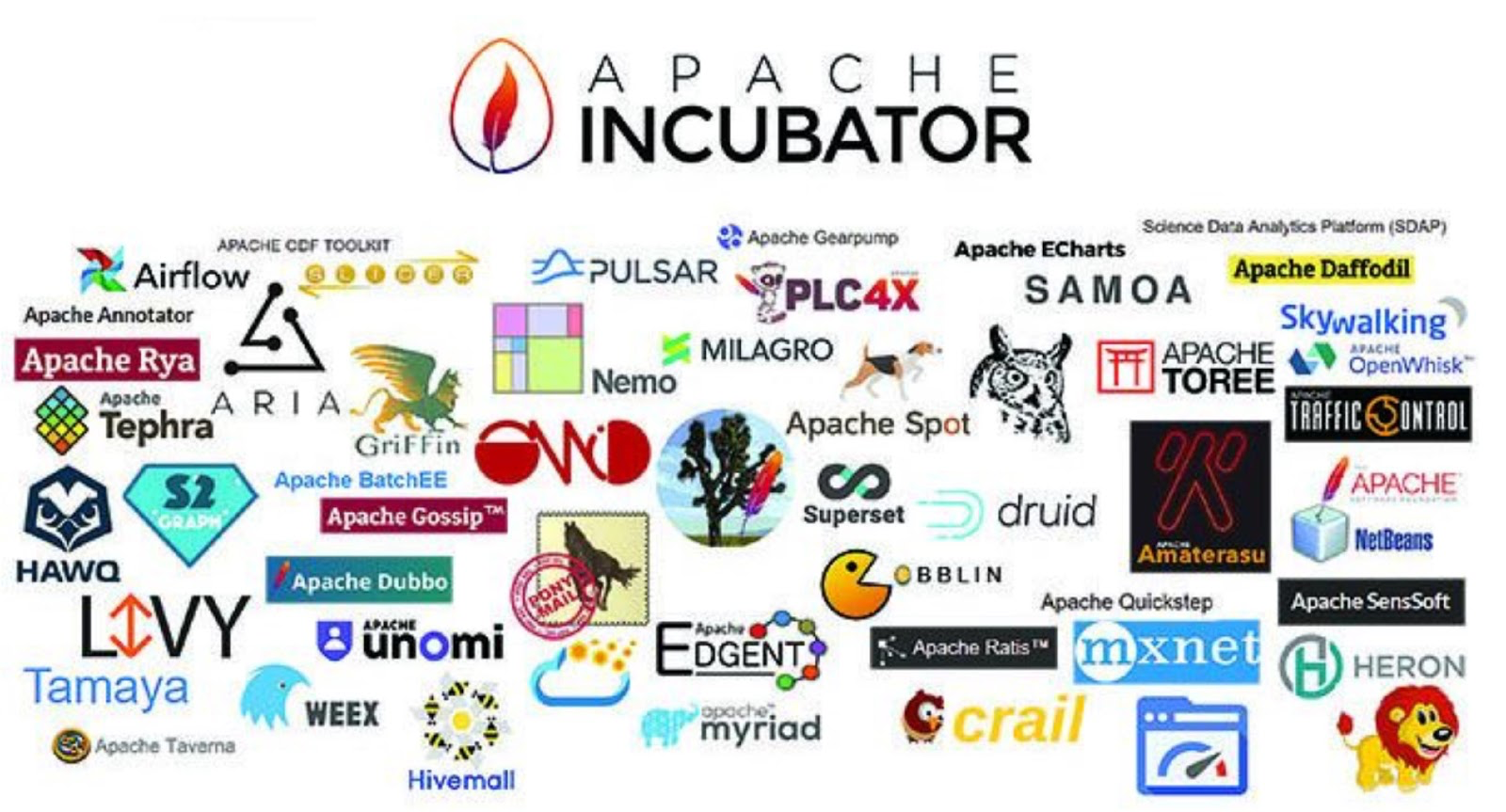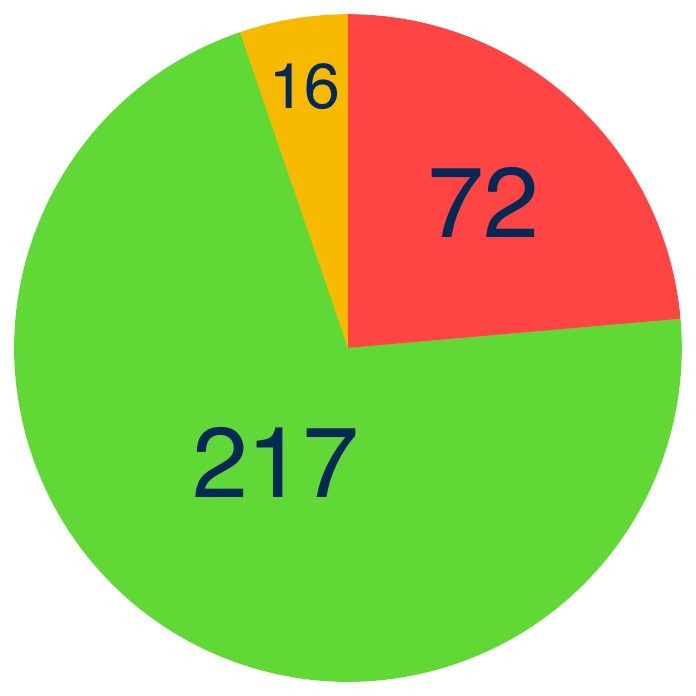Navigating the ASF Incubator Process
Justin Mclean

Navigating the ASF Incubator Process
Justin Mclean
APACHECON EUROPE
Oct. 22nd - 24th
2019
TODO Fill in your own your info here
World’s largest Open Source Foundation
A neutral space where independent projects can prosper
Creates open source software for the public good free of charge
Business friendly Apache License 2.0
7126 committers, 765 members, 204 PMCs, 48 podlings
Where communities come to learn the Apache Way
Likes existing projects with a community around them
Main entry point for new projects

Open community development
Move away from vendor driven development
Grow your community
No one is the boss
Learn the Apache Way
Learn ASF policies
To grow a community
To foster independence
To clarify licensing and intellectual property rights
Podling follows the Apache Way
Ensure donations comply with the Apache 2.0 license
Podling follows the ASF structure of contributors, committers and PMC members
Podling grants more responsibility via meritocracy
Ensure that decision making is done in the open
People act as individuals, not the company they work for
Charity - For the public good. Software costs nothing.
Pragmatic - Business friendly.
Community - Collaboration, consensus and diversity.
Merit - The more you do you more responsibility you have. Not just code contributions.
Open - Everything in the public view. Discussions occur on mailing lists. Everyone can participate.
Consensus - Work together to find ways forward.
No charge for Apache software
We rely on donations to keep things running
Few paid staff, everyone is a volunteer
Not “pay to play”
Apache License 2.0 is business friendly
No obligation to give anything back
Diverse communities
Few hard rules, but have guidelines to help projects
Don’t need to work on it full time
Many people working together
More resources than a single company
Diversity of people, experience and ideas
Individuals not companies
Given responsibility via earning merit
Discussion on the mailing list
Individuals gain merit by contributing to a project
Users become contributors become committers become PMC members
PMC appoints new PMC and committer members
Merit does not expire
Committers get access to the repository
PMC vote on releases
PMC decide the direction of the projects via consensus
Everything (mostly) is available to the public
What isn’t public is available to all members
Code is made publicly available
All discussions made in the open
Discussion are archived and searchable
Discussions are asynchronous
No face to face meetings
Everyone knows what is going on
Community works towards consensus on major decisions
Use lazy consensus for minor ones
Not 100% agreement, but all agree it is a way forward
Permissive license - you can do what you want
Business friendly - can be used for commercial projects
Requires source headers, a LICENSE and (optionally) a NOTICE file
If not an ASF project:
You don’t need to publish the source
You don’t have to give back to the project
You don’t need to ask for permission to use
48 projects in the incubator
306 IPMC members (but not all are active)
Projects usually stay 1 to 2 years in the incubator
A dozen or so successful releases a month
About 70% of releases pass an IPMC vote
Find a champion to help you through the proposal process
Draft a proposal with details why you think it’s suitable
Find (usually 3) mentors to help you guide you through the TLP process
May take a little while to go through these steps
Discuss on the incubator general mailing list (which may attract more potential committers)
IPMC Votes on the proposal - most are accepted
The Champion’s role is over and they are more like a mentor from this point on
Mentors help with setup of the podling
Setup includes the mailing lists, version control, bug tracking and web site
Have initial committers sign ICLAs and add to podling roster
Bring initial code in via a software grant
Create your website
Learn how to make software releases and refine your build process
Grow the community by adding new committers
Learn to communicate in the open
Scrub your code and perform IP clearance
May need to relicense 3rd party code
Open asynchronous communication on email lists
Decisions need to be made in the open
JIRA / git discussion also OK (mirrored to list)
Project independence with no company influence
Welcoming to new people
Answer user questions
Add new committers and PPMC members
Become a Top Level Project
Retire
Must be cryptographically signed
Must have an incubating disclaimer
Have LICENSE and NOTICE file that follow Apache policy
Follow licensing terms of any 3rd party bundled software
3rd party files are compatible with the Apache license
Source files have ASF headers
Contain source code and no compiled code
Podling creates a release candidate
Vote on dev mailing list until 3 +1 votes and more +1 than -1
If vote fails need to make a new release candidate
Vote on incubator general mailing list
Need 3 +1 and more +1 than -1 by IPMC members
If vote fails need to make a new release candidate
Can release once vote passes and 72 hours pass

Unexpected binary in the source release
Includes Category X licensed software (usually GPL)
Included Category B license software
LICENSE or NOTICE issue
Copyright issue
Missing license header or header issue
Contains encryption software
Release votes need 3 +1 votes and more +1 than -1 votes to pass
Only IPMC votes are binding but good to take notice of other votes
People can change their minds and vote again
People put up conditional votes
That being said a -1 vote is often for a good reason so you should at least look into it
Incubating projects are not expected to get it right the first time
May not be familiar with policy at the start
Policy doesn’t cover all situations
Different projects may do things in different ways, policies are in most cases guidance
A release containing no surprises is a good thing
Licenses provide certain legal obligations you need to comply with
Apache policy adds a little more:
Need to have NOTICE file
List all licenses in LICENSE (even if it not required)
We’re not the only people who have difficulty or frustration with licensing
Apache projects tend to be on average a lot better!
External projects often:
Have Unclear licenses
Include code under a different (sometimes incompatible) licenses
If Apache 2.0 licensed are missing a NOTICE file
Try to have funny licenses
Can bundle software and can depend on
Doesn’t add any restrictions above and beyond what the Apache License 2.0 does
Common licenses include Apache License 2.0, Apache License 1.1, 2 or 3 clause BSD (without advertising clause), MIT/X11, W3C, Unicode, CC copyright only
Probably can’t include in a source release
Contain some restriction of use
May be able to use the binary form to limit the chance of corruption
Common license include:
Common Development and Distribution License (CDDL), Eclipse Public License (EPL), Mozilla Public License (MPL), Creative Common Attribution (CC-A)
Can’t depend on
Can’t bundle software
A few exceptions for build tools and optional dependencies
Common Category X include:
GPL, LGPL, CC non commercial, JSON, BSD 4 clause, Apache 1.0?
Not considered an official release
Need to comply the same way with policies as source distributions
LICENSE and NOTICE may be different as the content of the release is often different from the source release
Apache Incubator
The Apache Way
Releases
Community
Licenses
Ask now, see me after the session, or email me, Justin Mclean at justin@classsoftware.com.
Legal previously asked questions
https://www.apache.org/legal/resolved
Incubator release process (DRAFT)
http://incubator.apache.org/guides/releasemanagement.html
https://incubator.apache.org/guides/release.html
Assembling License and Notice How To
http://www.apache.org/dev/licensing-howto.html
Apache Maturity Model
http://community.apache.org/apache-way/apache-project-maturity-model.html
Legal mailing list archive
http://mail-archives.apache.org/mod_mbox/www-legal-discuss/
Legal JIRA
https://issues.apache.org/jira/browse/LEGAL